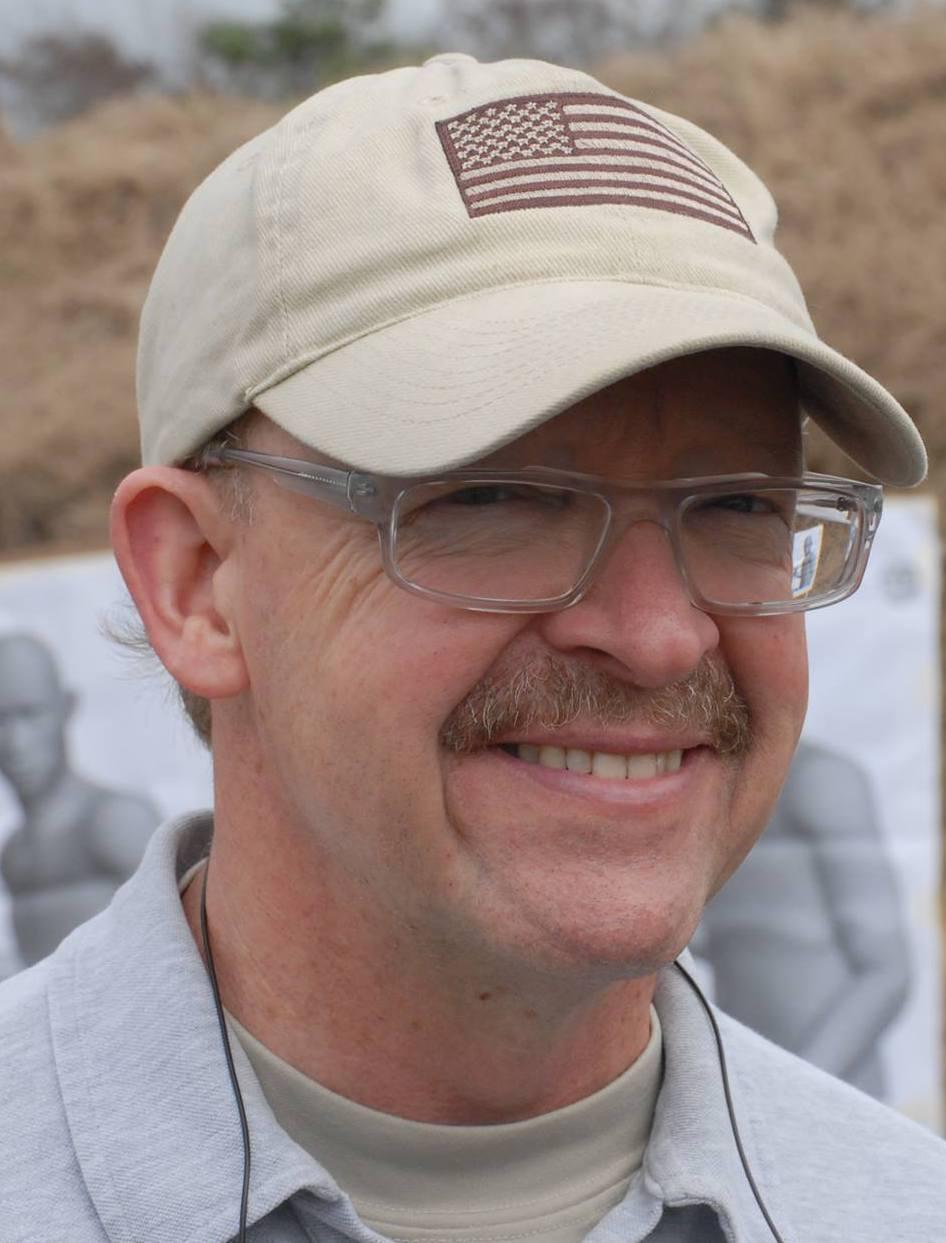Including ...In Pursuit of Better Practice • President’s Message • Attorney Question • Book Review • Editorial • About this Journal
Get eJournal PDF: click here
In Pursuit of Better Practice
An Interview with Claude Werner
by Gila Hayes
Claude Werner, the Tactical Professor, recently published an eBook full of drills for self-guided practice and skill development, which we’ll review a few pages further into this edition of this journal. Werner is known for encouraging regular practice, both dry practice and live fire, and this is the focus of his new book.
While admonishments to obtain documentable training are common to these pages, not as much is said about practice to maintain skills learned during training. Werner’s book focuses on challenging ourselves to accomplish high but measurable standards through practice. His drills blend fundamental skills with focus challenges to also hone the mental aspect of using a gun. How far, I wondered, could the armed citizen proceed in his or her skill development through self-guided practice alone? This and other questions prompted a call to the Tactical Professor. The discussion was so interesting that I think our readers will also find it beneficial.
eJournal: I read your eBook last weekend and wondered about several aspects of self-guided practice. First, though, can we tie down the correct terminology? Two words, “training” and “practice,” are used extensively. How do you define each? What are the differences and where, if at all, does practice overlap into training?
President’s Message
by Marty Hayes, J.D.
We are now 19 for 19. That’s a world class record, in anyone’s judgment. What am I referring to? I’m talking about fulfilling the Network’s mission, of course. The part of our mission which entails making sure our members have legal representation after a self-defense incident. We do this either through introducing the member to an attorney and then paying the attorney’s fees if the member wants to hire that lawyer, or the member choosing their own attorney and the Network paying that attorney’s legal bill.
The reason I bring this up now is due to my recent experiences assisting two members of the Network who were either attacked or about to be attacked and they were forced to shoot and kill an assailant. Of course, I am not going to share details, but suffice it to say that neither was arrested after the incident, which bodes well for the long-term adjudication of the use of force, legally speaking.
Let me take a moment to explain one set of circumstances and how we worked to hook the member up with a well-respected attorney within a couple hours of their phone call. One morning, about 8 a.m. Pacific time, a member called to relate that on the previous day he had been involved in a fatal shooting.
Attorney Question of the Month
![]()
This month’s column is the completion of a question posted in the past two editions of this journal by a Network member and firearms instructor who asked--
If a Network member is accompanied by a friend or family member at the time of an armed self-defense incident, is it preferable that the 9-1-1 call be made by the associate? Why or why not? What information should the associate provide to the police dispatchers?
Alex Ooley and Mike Ooley
Boehl Stopher & Graves
400 Pearl St., Ste. 204, New Albany, IN 47150
812-948-5053
https://bsg-law.com/e-michael-ooley/
As with most legal responses, it depends. The 911 call is incredibly important as it essentially identifies victims and perpetrators. The law enforcement system typically operates under the assumption that the first person to call 911 is the victim of a crime, and also demonstrates no consciousness of guilt on behalf of the caller. Therefore, as soon as it is safe to do so, it is important that you or your designee call 911 from the scene of a defensive shooting. Only leave the scene if it is not safe to stay.
Book Review
Concealed Carry Skills and Drills
A Guide for Average People
By Claude Werner, The Tactical Professor
© 2018 Claude Werner, Firearms Safety Training LLC
Downloadable 84-page eBook, $9.95
https://tacticalprofessor.wordpress.com/2018/07/18/concealed-carry-skills-and-drills-the-book/
Reviewed by Gila Hayes
Last month Claude Werner released his new eBook, Concealed Carry Skills and Drills, A Guide for Average People, a self-coaching skills improvement book that maps out a substantial series of practice sessions designed to bring structure and measurability to individual practice. This is a great program for the armed citizen intent on building up his or her skills with a handgun.
Editor's Notebook
Good Planning for Bad Times
by Gila Hayes
Armed citizens face the conundrum of working hard to avoid having to defend themselves while also putting in place measures to limit aftereffects if they do have to stop a deadly force attack. I think that is why so many just never get around to implementing legal defense protections to avoid being punished for the crime of assault, murder or manslaughter after doing only what was necessary to survive. Many fail to even compile an In Case of Emergency file folder for loved ones who are called upon to help while the armed citizen is in police custody after a shooting or defensive display of a firearm. Just like briefing your spouse and kids about the reality of self defense, this is a preparatory step that too frequently just doesn’t get done. The family may be resistant to talking about self defense issues and besides, it is more fun to go to the range and shoot or to sit back and watch gun videos.
About this Journal

The eJournal of the Armed Citizens’ Legal Defense Network, Inc. is published monthly on the Network’s website at http://armedcitizensnetwork.org/our-journal. Content is copyrighted by the Armed Citizens’ Legal Defense Network, Inc.
